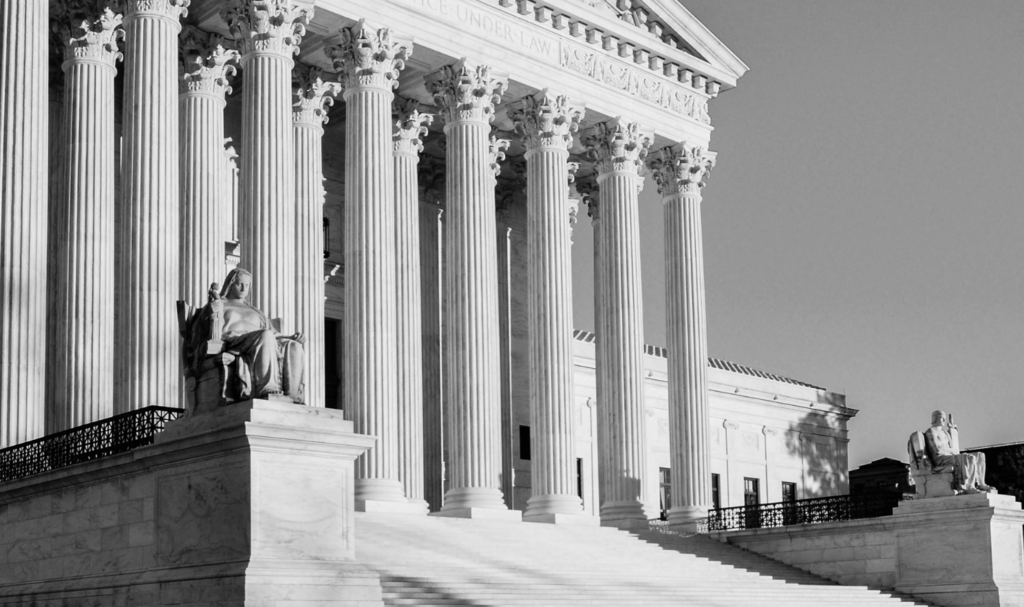The First Amendment provides Americans with crucial civil liberties, with one of the most important being the freedom of religion. A cornerstone of American liberty is the separation of church and state, but sometimes the line between the two can blur. Our Lady of Guadalupe School v. Morrissey-Berru presents the issue of governmental interference with the internal governance and organization of a religious institution.
Before analyzing the case presented before the Supreme Court, a brief history of events is necessary. Agnes Morrissey-Berru was a teacher at Our Lady of Guadalupe School, a Catholic elementary school in Hermosa Beach, California. After being dismissed from her position, she brought a claim against the school under the Age Discrimination in Employment Act (ADEA), alleging the school terminated her employment for no other reason than her age. The school’s response to this claim was that Morrissey-Berru could not bring an ADEA claim against the school because they claimed she was a minister of the school.
The ministerial exception is a doctrine intended to protect religious liberty by exempting religious institutions from certain civil rights laws. To prevent the government from interfering with religious affairs, a church’s employment relationships with its ministers is exempt from anti-discrimination laws. See Hosanna-Tabor v. EEOC, in which the Supreme Court established a four-factor test to determine a person’s status at a religious organization, and whether they could be classified as a minister.
By claiming that Morrissey-Berru was a minister at the school, Our Lady of Guadalupe intended to prevent her from filing a discrimination claim against the school.
The case made its way up the legal ladder, with the U.S. District Court for the Central District of California granting summary judgment to the school under the ministerial exception, and the Ninth Circuit Court of Appeals reversing that decision. The issue brought before the Supreme Court is whether the First Amendment’s religion clauses prohibit lay teachers at religious elementary schools from bringing employment discrimination claims. Both parties have argued extensively about Morrissey-Berru’s status at the school, whether she held the secular title of teacher or the religious title of minister. The Respondents (Morrissey-Berru) argued that she was a teacher, for all intents and purposes. A key part of their argument was that the Court should adhere to the multi-factor test for determining ministerial status that was established in Hosanna-Tabor v. EEOC. However, in determining Hosanna-Tabor, the Court specified that it was not intended to set a “rigid formula” for determination, and instead should be used to supplement the entire circumstances of the situation. Nonetheless, the Respondents stand by the test.
The factors of the test are simple: the Court must consider whether the employer bestowed a formal religious title upon the employee; whether the employee’s title reflected ministerial substance and training; whether the employee held themselves out as a minister; and whether their job duties included important religious functions. The Respondents allege that none of these factors have been met.
Morrissey-Berru did attend a single course on the history of the Catholic church, and she did incorporate certain religious aspects in her teaching role. However, the Respondents argue that her course in Catholic history did not amount to religious training, and that the religious aspects of her teaching (which amounted to chaperoning church trips and praying for students’ sick parents) were insignificant and did not convert her into a minister.
The school attempts to frame the issue in a different matter. Jumping on the Court’s decision in Hosanna to “consider the circumstances of the employee’s employment,” they ask the Court to consider function over form in determining whether Morrissey-Berru was a minister. They urge the Court to consider the guidelines set forth in Hosanna with a flexible view, citing several examples of caselaw to back up their point. They point to previous examples and uses of the Hosanna test in which the courts analyzed the employee’s full range of duties at the school and how they could be interpreted to be promoting the religious mission of the school for which they are employed. The school argues that the title of “teacher” is not entirely secular, and that at their school, teachers are expected to lead the next generation into the Catholic faith. The school urges the Court to consider whether Morrissey-Berru had a significant role in teaching faith to the students, and to minimize the importance of a title in favor of the teacher’s functional duties at the school. Of course, they argue that her functional duties included promoting the Catholic faith, a religious duty which would bar her claim from being filed in court.
Oral arguments were presented to the Supreme Court remotely May 11, 2020. The case was consolidated with St. James School v. Biel.
The justices seemed concerned with protecting the rights of religious institutions to have their own discretion in who qualifies as a minister. The teachers argued that they held no position of religious leadership, to which the justices responded that the government could not determine how much leadership is required to be considered a minister without meddling in the internal affairs of religious organizations.
Overall, it seemed that the justices are leaning toward giving religious organizations broad discretion in determining who is or is not a minister. However, there could still be a point made for protecting the rights of secular workers at religious organizations. Oral arguments seemed to end in the favor of the school but is not definite until an order is issued.








